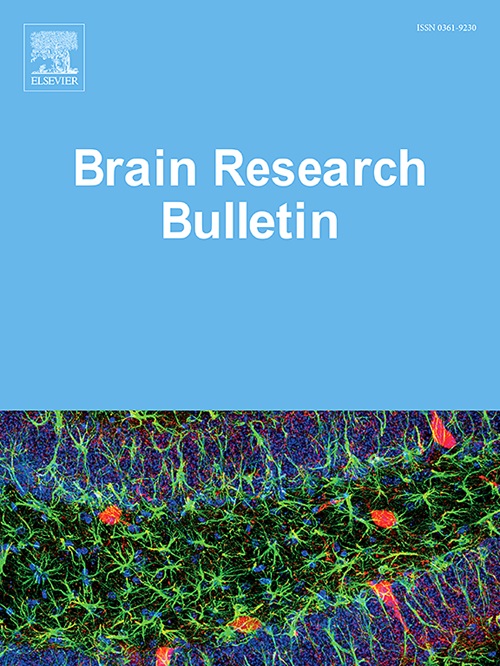房颤相关缺血性脑卒中与认知功能障碍:特点及发病机制的研究进展
IF 3.5
3区 医学
Q2 NEUROSCIENCES
引用次数: 0
摘要
脑卒中后认知障碍(PSCI)是一种重要的神经系统并发症,影响着多达三分之一的脑卒中幸存者。心房颤动(AF)是最常见的心律失常,显著增加缺血性中风的风险。越来越多的证据表明,房颤在加剧脑卒中患者认知能力下降中起着关键作用。这篇综述整合了目前的临床、影像学和机制研究结果,以阐明心房纤颤相关中风如何通过多种重叠的途径加剧认知能力下降,包括血栓栓塞、神经炎症、动脉粥样硬化、脑灌注不足、脑小血管疾病和无症状性梗死。这些过程共同损害脑血管完整性,诱导神经元损伤,加速脑老化。这篇综述进一步评估了临床和神经成像生物标志物作为预测工具和治疗策略的作用。通过整合最新的研究见解,我们旨在为缓解af相关性脑卒中患者认知能力下降提供一个全面的框架,并突出未来的研究方向。本文章由计算机程序翻译,如有差异,请以英文原文为准。
Atrial fibrillation-related ischemic stroke and cognitive impairment: Research progress on the characteristics and pathogenesis
Post-stroke cognitive impairment (PSCI) is a significant neurological complication, affecting up to one-third of stroke survivors. Atrial fibrillation (AF) is the most prevalent cardiac arrhythmia, significantly increasing the risk of ischemic stroke. Increasing evidence suggests that AF plays a pivotal role in exacerbating cognitive decline in stroke patients. This review integrates current clinical, imaging, and mechanistic findings to elucidate how AF-related strokes exacerbate cognitive decline through multiple overlapping pathways, including thromboembolism, neuroinflammation, atherosclerosis, cerebral hypoperfusion, cerebral small vessel disease, and silent infarctions. These processes collectively impair cerebrovascular integrity, induce neuronal damage, and accelerate brain aging. The review further evaluates the role of clinical and neuroimaging biomarkers as predictive tools and their utility in guiding therapeutic strategies. By integrating insights of the latest researches, we aim to provide a comprehensive framework for alleviating cognitive decline in patients with AF-related stroke and highlight future research directions.
求助全文
通过发布文献求助,成功后即可免费获取论文全文。
去求助
来源期刊

Brain Research Bulletin
医学-神经科学
CiteScore
6.90
自引率
2.60%
发文量
253
审稿时长
67 days
期刊介绍:
The Brain Research Bulletin (BRB) aims to publish novel work that advances our knowledge of molecular and cellular mechanisms that underlie neural network properties associated with behavior, cognition and other brain functions during neurodevelopment and in the adult. Although clinical research is out of the Journal''s scope, the BRB also aims to publish translation research that provides insight into biological mechanisms and processes associated with neurodegeneration mechanisms, neurological diseases and neuropsychiatric disorders. The Journal is especially interested in research using novel methodologies, such as optogenetics, multielectrode array recordings and life imaging in wild-type and genetically-modified animal models, with the goal to advance our understanding of how neurons, glia and networks function in vivo.
 求助内容:
求助内容: 应助结果提醒方式:
应助结果提醒方式:


